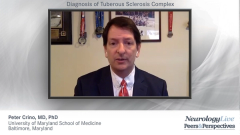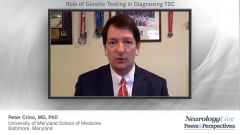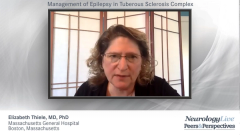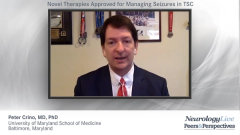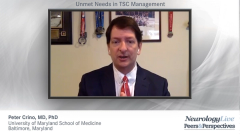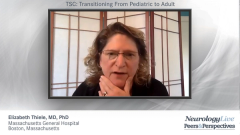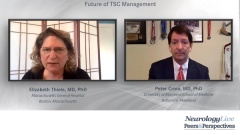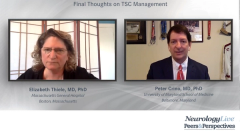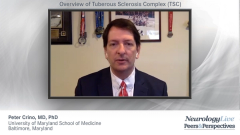
Diagnosis of Tuberous Sclerosis Complex
Expert neurologists discuss the clinical presentation and diagnosis of tuberous sclerosis complex.
Episodes in this series

Elizabeth Thiele, MD, PhD: The other thing that’s interesting about TS [tuberous sclerosis] is when people get diagnosed. What leads to the diagnosis? As a pediatric person, I think it’s often prenatally with the cardiac rhabdomyomas or in infancy with the onset of seizures. We’re going to talk a lot about seizures. People have been diagnosed also—in adolescence, in childhood—by being referred for clinical acne or other issues. I know we see a lot of adults who were diagnosed in childhood. What about the people who walk in and are diagnosed as adults. What usually leads to that diagnosis?
Peter Crino, MD, PhD: It’s been an incredible set of stories. I’ve been doing TS care since the mid-1990s, and I’ve seen all kinds of presentations. Suffice it to say, in every person, when they find out that they have a genetic disease, whether inherited or a spontaneous sporadic mutation, they’re usually pretty surprised and ask, “What’s tuberous sclerosis? I’ve never heard of that in my life.” It’s been a mixture of presentations. A common presentation, for example, is a parent who comes in with a child with known tuberous sclerosis. We have the conversation that this is a genetic disease. Then I say, “Would you like me to look at your skin or do an exam?” It turns out they have some of the major or minor diagnostic features of TSC [tuberous sclerosis complex], and I say, “You may have this as well,” which is always a fairly sobering conversation. I’ve had individuals who have come in with a first-time seizure, gotten a brain MRI, and have found abnormalities in the brain that are highly consistent with TSC. Then I do a skin exam or look at the kidneys, and I’m able to assemble a diagnosis.
We’ve had a number of individuals present primarily with very odd and rare types of cancers that are associated with tuberous sclerosis. Obviously, TSC is not a cancer syndrome. But there are a couple of very rare cancers, such as pancreatic neuroectodermal tumors. I’ve seen 2 people present with that as their initial manifestation, and they never knew they had tuberous sclerosis complex. Interestingly, they never really had seizures or much else. It’s curious that many of them, when queried about TAND [TSC-associated neuropsychiatric disorders], report that they have a lot of the things that are very compatible with TAND. It’s a broad range of presentations. My oldest new diagnosis was a man in his mid-70s who had prostate cancer unrelated to his tuberous sclerosis. As part of his work-up, he had an abdominal MRI and bilateral kidney lesions, and he told me, as you mentioned acne before, “Yeah, I’ve had lifelong acne. I never could get rid of it.” It turns out he had tuberous sclerosis complex.
Elizabeth Thiele, MD, PhD: It’s amazing. I’ve also seen many people as adults who are diagnosed who had been living with this disorder for decades and never knew.
Peter Crino, MD, PhD: They never knew.
Elizabeth Thiele, MD, PhD: My oldest is also in his 70s, so it’s interesting.
I’d like to thank the audience for watching this Neurology Live® webinar. If you enjoyed the content, please subscribe to our e-newsletters to receive upcoming programs and other great content right in your in-box.
Transcript Edited for Clarity
Newsletter
Keep your finger on the pulse of neurology—subscribe to NeurologyLive for expert interviews, new data, and breakthrough treatment updates.

